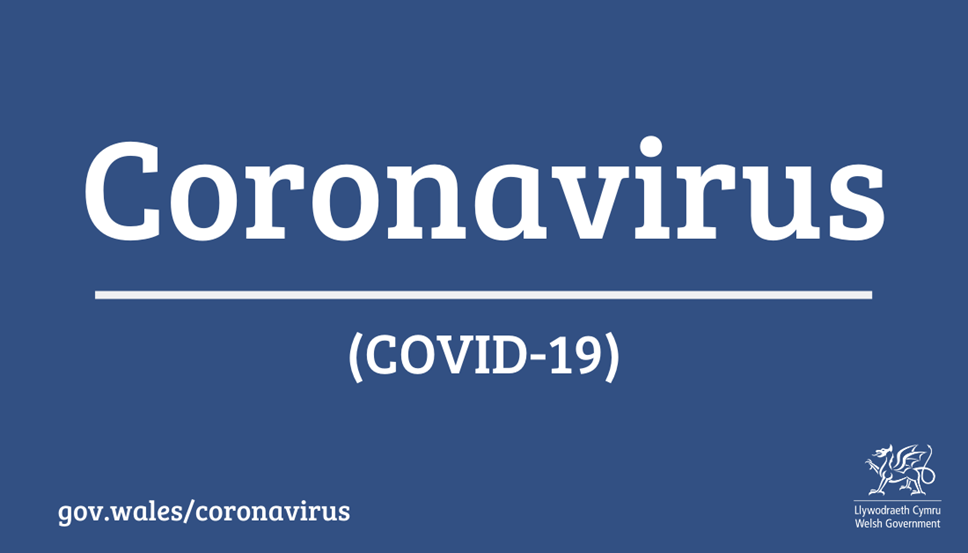
Three-layer face coverings recommended, but not mandatory, in certain situations in Wales
Gorchuddion wyneb tair haen yn cael eu hargymell, ond ddim yn orfodol, mewn rhai sefyllfaoedd yng Nghymru
Cymraeg i ddilyn
The Welsh Government is following updated advice from the World Health Organisation (WHO) and recommending people in Wales wear three-layer face coverings in situations where social distancing is not possible.
The evidence remains clear that maintaining a two-metre distance and good hand hygiene is the most effective way to protect yourself and others from contracting coronavirus, but the updated guidance from the WHO says three layer face coverings could help provide some control of the virus in specific circumstances.
This updated advice only applies to people who are not showing symptoms of coronavirus. People who are symptomatic must self-isolate for seven days and get a test, as set out in existing guidance. Unless the test shows a negative result, they must not go out during this time, even with a face covering or mask.
Health Minister Vaughan Gething said: “Washing your hands, avoiding touching your face and maintaining a tw-metre distance from others remain the best way of stopping the spread of the virus.
“On Friday, the WHO updated their guidance on face coverings, advising that they should be considered in settings where maintaining social distancing is difficult. However, to be crystal clear, wearing a face covering does not replace the need for social distancing or washing your hands regularly.
“Further scientific evidence is needed on the benefits to the wider public of wearing face coverings, but observational findings so far suggest that homemade or purchased three-layer face-coverings might reduce transmission from one person to another if made, worn, handled and disposed of properly.
“Therefore, on balance, we are recommending to the people of Wales that three-layer face-coverings should be used in situations where social distancing measures can be more difficult to achieve, for example, on public transport. We are not recommending their use outdoors.
“The wearing of face coverings will not be mandatory, but we will encourage people to do this for the benefit of themselves and others.”
The Minister stressed that this advice only applies to people who are not showing symptoms of coronavirus, adding: “Anyone who has a high temperature, a new, continuous cough or a loss or change to their sense of smell or taste must self-isolate for a minimum of seven days and get a test as quickly as possible. Unless the test shows a negative result, people must not go out during this time, even with a face covering or mask.”
Notes
To provide any protection to others, face coverings need to be made, worn, handled and disposed of in a certain way.
The WHO recommends a minimum of three layers in a face covering, which should include:
- An inner layer of absorbent material, such as cotton
- A middle layer of non-woven material, such as polypropylene
- An outer layer of non-absorbent material, such as polyester or polyester-blend
